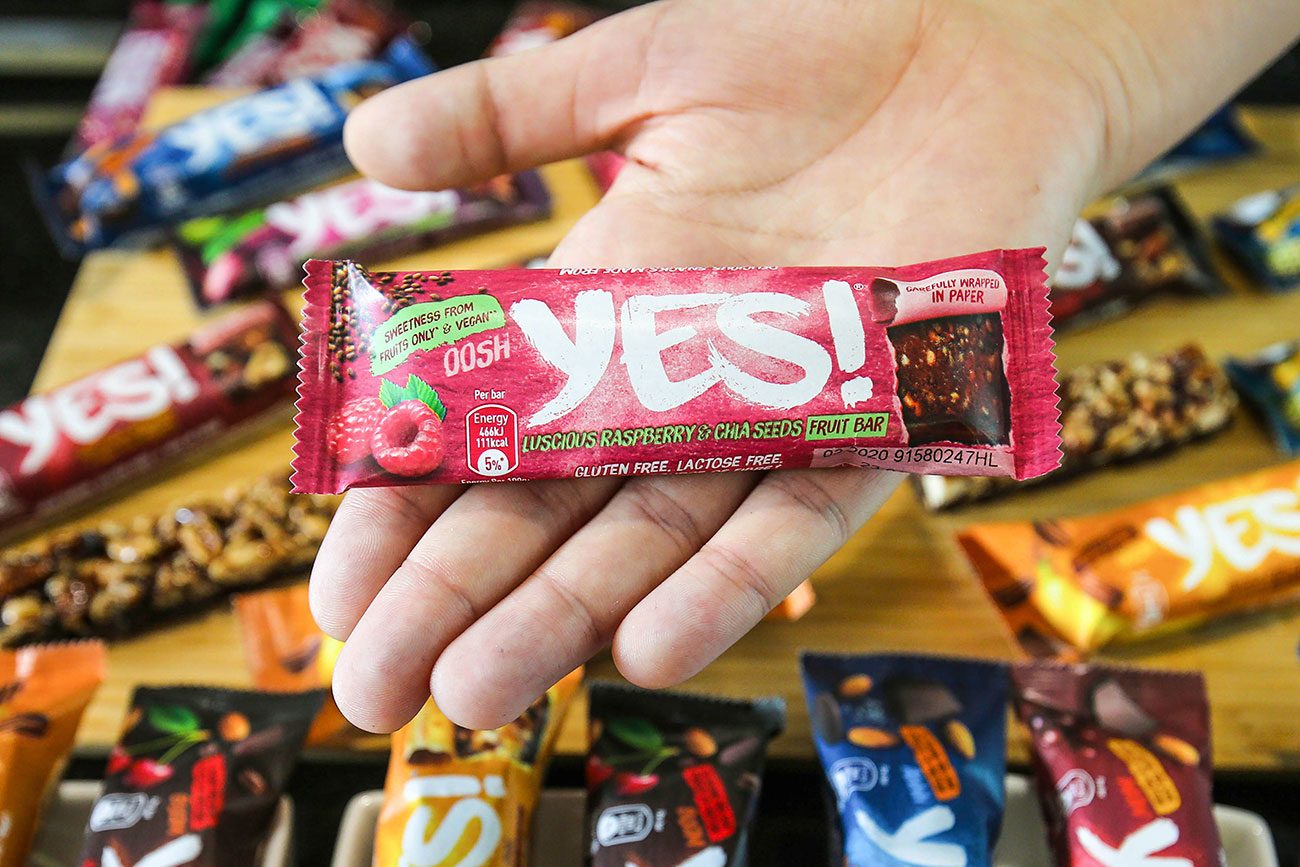Those geniuses at Nestlé in York have launched a new eco-friendly wrapper which will keep your snack fresh but will quickly degrade when thrown away.
The wrapper can be used on a high-speed packaging line in a “world-first” technological breakthrough.
It will be first used on the YES! snack bar range. The new packaging is made from sustainable coated paper that is widely recyclable and will degrade in a marine environment within six months.
Experts at the confectionery company’s research and development centre in York had to overcome more than 90 challenges to develop the material and adapt current packaging machinery and processes to handle the product more gently.
Created in 10 months

But the team at Nestle took just 10 months to create the paper wrapper and adapt production lines to ensure the bars are kept in perfect condition during packaging, transport and storage.
The development of the new wrapper comes after Nestle pledged last year to make all of its packaging recyclable or reusable by 2025.

It will be rolled out on the YES! fruit and nut-based bars from July and will carry the message “carefully wrapped in paper”.
Jas Scott de Martinville, global confectionery research and development lead for Nestle, said paper packaging has been used on chocolate products before:
-
What’s unique about this innovation is, first and foremost, running paper packaging at high speed on existing machinery, 300-bars-per-minute, that’s the first bit of uniqueness.
The second bit of uniqueness is guaranteeing a standard shelf-life of nine months, so having a barrier paper that keeps the product at its freshest over that time.
And the third element of it is to ensure, as we run at these high speeds, the bars are properly sealed, again to ensure the product is kept at its freshest.
It’s a world-first in terms of the combination of these factors to bring to life this product.
She said speed was essential to ensure the company is on track to meet its 2025 target for wholly recyclable or reusable packaging.
Marine environment

“Really this is the first confectionery product bar that’s wrapped at high speed and is ensuring we have a good shelf life without compromise to the consumer,” he said.
Michael Carroll, senior packaging specialist and lead on innovation and sustainability for Nestlé, added that the packaging would degrade in a marine environment more quickly than current plastic packaging.
He said: “We know it will degrade in a marine environment within six months, which, compared to the flow wrap that it’s currently in, it’s about 450 years.”
